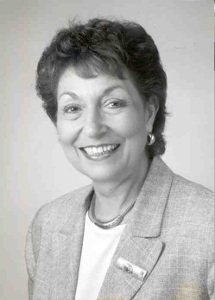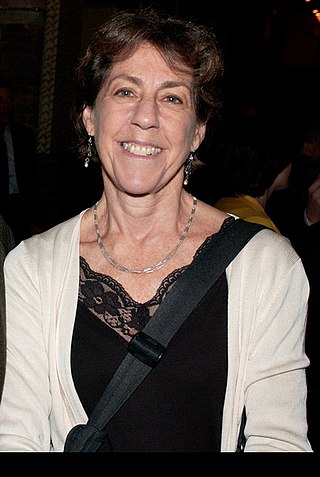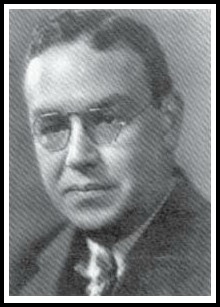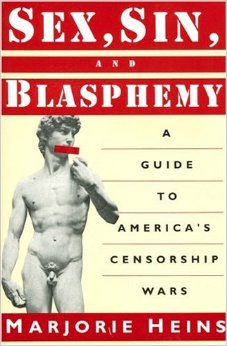Related Research Articles
The American Library Association (ALA) is a nonprofit organization based in the United States that promotes libraries and library education internationally. It is the oldest and largest library association in the world, with 49,727 members as of 2021.

Judith Fingeret Krug was an American librarian, freedom of speech proponent, and critic of censorship. Krug became director of the Office for Intellectual Freedom at the American Library Association in 1967. In 1969, she joined the Freedom to Read Foundation as its executive director. Krug co-founded Banned Books Week in 1982.

The National Coalition Against Censorship (NCAC), founded in 1974, is an alliance of 50 American non-profit organizations, including literary, artistic, religious, educational, professional, labor, and civil liberties groups. NCAC is a New York–based organization with official 501(c)(3) status in the United States. The coalition seeks to defend freedom of thought, inquiry, and expression from censorship and threats of censorship through education and outreach, and direct advocacy. NCAC assists individuals, community groups, and institutions with strategies and resources for resisting censorship and creating a climate hospitable to free expression. It also encourages the publicizing of cases of censorship and has a place to report instances of censorship on the organization's website. Their annual fundraiser is called the Free Speech Defender Awards. The main goal of the organization is to defend the first amendment, freedom of thought, inquiry, and expression. NCAC's website contains reports of censorship incidents, analysis and discussion of free expression issues, a database of legal cases in the arts, an archive of NCAC's quarterly newsletter, a blog, and Censorpedia, a crowdsourced wiki. In fiscal year 2017, the organization earned a 95.93% rating by Charity Navigator, an organization that assesses the efficacy of nonprofits.
The Library Bill of Rights is the American Library Association's statement expressing the rights of library users to intellectual freedom and the expectations the association places on libraries to support those rights. The Association's Council has adopted a number of interpretations of the document applying it to various library policies.

Library circulation or library lending comprises the activities around the lending of library books and other material to users of a lending library. A circulation or lending department is one of the key departments of a library.

Marjorie Heins is a First Amendment lawyer, writer and founder of the Free Expression Policy Project.

Eli Martin Oboler was an American librarian who worked as the longtime librarian at the Idaho State University library, later renamed the Eli M. Oboler Library, from 1949 to 1980. He was also a member of the Idaho Library Association and the Pacific Northwest Library Association, and served as president for both organizations. Oboler was a noted defender of intellectual freedom and an anti-censorship activist.

Banned Books Week is an annual awareness campaign promoted by the American Library Association and Amnesty International, that celebrates the freedom to read, draws attention to banned and challenged books, and highlights persecuted individuals. Held in late September or early October since 1982, the United States campaign "stresses the importance of ensuring the availability of those unorthodox or unpopular viewpoints to all who wish to read them" and the requirement to keep material publicly available so that people can develop their own conclusions and opinions. The international campaign notes individuals "persecuted because of the writings that they produce, circulate or read." Some of the events that occur during Banned Book Week are The Virtual Read-Out and The First Amendment Film Festival.

Forrest Brisbin Spaulding was an American librarian. He was named in the American Libraries article, "100 of the most important leaders we had in the 20th century" for his contribution to intellectual freedom in writing the Library Bill of Rights. He was a humanitarian who is remembered not only for his contributions to librarianship, but also for the positive influence he had on the communities in which he lived and worked. In a commentary on the play The Not So Quiet Librarian, by Cynthia Mercati, Humanities Iowa writes that "Spaulding's words and his life touched everyone who loved not just books but freedom of expression." While Forrest Spaulding is remembered for his contributions to librarianship, he began his career as a reporter. The State Library of Iowa biography mentions that while he spent some time as director of Peru's libraries and museums in 1920, "he was also a correspondent for the Associated Press. He is noted as saying that his 'efforts to report the news from that country gave him a bitter object lesson in censorship.'"

Zoia Markovna Horn, born in Ukraine, became in 1972 the first United States librarian to be jailed for refusing to share information as a matter of conscience. Horn, an outspoken member of the American Library Association's Intellectual Freedom Committee, worked at Bucknell University in Lewisburg, Pennsylvania, in the early 1970s. Horn was jailed for nearly three weeks for contempt of court after refusing to testify for the prosecution in the 1972 conspiracy trial of the "Harrisburg Seven" anti-war activists.

Alexander Peter Allain was a lawyer and library advocate known for his work securing the freedom of expression. His career was devoted to securing First Amendment rights for libraries.

William Shepherd Dix was a scholar and librarian who had a 22-year career as Librarian at Princeton University in New Jersey, without a degree in library science. His contributions to the field of librarianship, however, are varied and notable, making him worthy of recognition in the American Libraries' 100 most important figures.

Emerson Greenaway was an American librarian of considerable note, particularly during the Cold War era of the 1950s. During his long career, he acted as the director of the Enoch Pratt Free Library of Baltimore, the director of the Free Library of Philadelphia and as a director of the American Library Association. He was also a highly respected scholar and an advocate for intellectual freedom in wartime. Greenaway also came under fire for his participation in anti-communist government committees. In 1999, American Libraries named Greenaway as one of the one hundred most important library figures of the 20th century.

Freedom of Expression® is a book written by Kembrew McLeod about freedom of speech issues involving concepts of intellectual property. The book was first published in 2005 by Doubleday as Freedom of Expression®: Overzealous Copyright Bozos and Other Enemies of Creativity, and in 2007 by University of Minnesota Press as Freedom of Expression®: Resistance and Repression in the Age of Intellectual Property. The paperback edition includes a foreword by Lawrence Lessig. The author recounts a history of the use of counter-cultural artistry, illegal art, and the use of copyrighted works in art as a form of fair use and creative expression. The book encourages the reader to continue such uses in art and other forms of creative expression.
Librarianship and human rights in the U.S. are linked by the philosophy and practice of library and information professionals supporting the rights enumerated in the Universal Declaration of Human Rights (UDHR), particularly the established rights to information, knowledge and free expression.
Book censorship is the removal, suppression, or restricted circulation of literary, artistic, or educational material – of images, ideas, and information – on the grounds that these are morally or otherwise objectionable according to the standards applied by the censor. Censorship is "the regulation of speech and other forms of expression by an entrenched authority". The overall intent of censorship, in any form, is to act as "a kind of safeguard for society, typically to protect norms and values [...] censorship suppresses what is considered objectionable from a political, moral, or religious standpoint."
The Freedom to Read Foundation (FTRF) is an American non-profit anti-censorship organization, established in 1969 by the American Library Association. The organization has been active in First Amendment-based challenges to book removals from libraries, and in anti-surveillance work. In addition to its legal work, the FTRF engages in advocacy and public awareness, such as its sponsorship of the annual celebration of "Banned Books Week".

Not in Front of the Children: "Indecency," Censorship, and the Innocence of Youth is a non-fiction book by attorney and civil libertarian, Marjorie Heins about freedom of speech and the relationship between censorship and the "think of the children" argument. The book presents a chronological history of censorship from Ancient Greece, Ancient Rome and the Middle Ages to the present. It discusses notable censored works, including Ulysses by James Joyce, Lady Chatterley's Lover by D. H. Lawrence and the seven dirty words monologue by comedian George Carlin. Heins discusses censorship aimed at youth in the United States through legislation including the Children's Internet Protection Act and the Communications Decency Act.

Sex, Sin, and Blasphemy: A Guide to America's Censorship Wars is a non-fiction book by lawyer and civil libertarian Marjorie Heins that is about freedom of speech and the censorship of works of art in the early 1990s by the U.S. government. The book was published in 1993 by The New Press. Heins provides an overview of the history of censorship, including the 1873 Comstock laws, and then moves on to more topical case studies of attempts at suppression of free expression.

Lucile M. Morsch was an American librarian who served as president of the American Library Association from 1957 to 1958. Morsch also worked as the Deputy Chief Assistant Librarian of Congress from 1953 to 1962.
References
- 1 2 3 4 "Intellectual Freedom and Censorship Q & A". American Library Association. May 29, 2007. Retrieved 2014-08-20.
- ↑ "Universal Declaration of Human Rights". UN. Retrieved 2010-04-09.
- 1 2 "Intellectual Freedom Manual: Eighth edition". ALA. Retrieved 2011-10-24.
- ↑ "ALA Intellectual Freedom Issues". ALA. Retrieved 2010-04-09.
- ↑ Abrams v. United States, 250 U.S. 616, 626 (1919)
- ↑ "Whitney v. California," 274 U.S. 357 (1927)
- ↑ "Olmstead v. United States," 277 U.S. 438 (1928)
- ↑ "United States v. Schwimmer," 279 U.S. 644 (1929)
- ↑ Human Rights Law, http://www.un.org/en/documents/udhr/hr_law.shtml
- ↑ "The Universal Declaration of Human Rights". www.un.org. Retrieved 2019-07-17.
- ↑ The One Un-American Act. Nieman Reports, vol. 7, no. 1 (January 1953): p. 20)
- ↑ "C-SPAN Landmark Cases | Brandenburg v Ohio". landmarkcases.c-span.org. Retrieved 2018-10-26.
- ↑ "IFLA Statement on Libraries and Intellectual Freedom". IFLA. Archived from the original on 2007-02-07. Retrieved 2007-03-04.
- ↑ "Canadian Library Association / Association canadienne des bibliothèques Position Statement on Intellectual Freedom". CLA. Archived from the original on 2008-03-03. Retrieved 2007-03-04.
- ↑ "ATTORNEY GENERAL STATUTES AMENDMENT ACT, 2004". BC. Archived from the original on 2011-07-06. Retrieved 2010-04-09.
- ↑ Office for Intellectual Freedom of the American Library Association. Intellectual Freedom Manual, (Chicago: American Library Association, 2010), p. 12-13.
- ↑ "IFC". American Library Association. Retrieved 2014-08-03.
- ↑ Office for Intellectual Freedom of the American Library Association. Intellectual Freedom Manual, (Chicago: American Library Association, 2010), p. 409.
- ↑ "IFC"
- ↑ Robbins, Louise S. Censorship and the American Library: The American Library Association's Response to Threats to Intellectual Freedom, 1939-1969'.' (Westport, CN: Greenwood Press, 1996). p. 16
- ↑ Office for Intellectual Freedom of the American Library Association. Intellectual Freedom Manual, (Chicago: American Library Association, 2010), p. 23.
- 1 2 "ALA Offices". American Library Association. Retrieved 2014-07-20.
- ↑ "Banned Books Week". American Library Association. Archived from the original on 2016-12-02. Retrieved 2014-07-20.
- ↑ "Frequently Challenged Books". American Library Association. Retrieved 2014-07-20.
- ↑ "Newsletter on Intellectual Freedom". American Library Association. Retrieved 2014-07-20.
- ↑ "Intellectual Freedom Action Network". American Library Association. Retrieved 2014-07-20.
- ↑ "Intellectual Freedom Action Network"
- ↑ "Webinars". American Library Association. Retrieved 2014-07-20.
- ↑ "IFRT". American Library Association. Retrieved 2014-08-13.
- ↑ Office for Intellectual Freedom of the American Library Association. Intellectual Freedom Manual, (Chicago: American Library Association, 2010), p. 411.
- ↑ "About FTRF". Freedom to Read Foundation. Retrieved 2014-08-03.
- 1 2 "About FTRF"
- ↑ Office for Intellectual Freedom of the American Library Association. Intellectual Freedom Manual, (Chicago: American Library Association, 2010), p. 412.
- ↑ Robbins, p.158
- ↑ Asheim, Lester. "Not Censorship but Selection," WLB 28 (September 1953): 67.
- ↑ "Merritt Fund". American Library Association. Retrieved 2014-08-19.
- ↑ Office for Intellectual Freedom of the American Library Association. Intellectual Freedom Manual, (Chicago: American Library Association, 2010), p. 27
- ↑ "Merritt Fund"
- ↑ "LeRoy C. Merritt". American Library Association. Archived from the original on 2014-08-26. Retrieved 2014-08-19.
- ↑ Fourie, Ian (2008). Intellectual Freedom Manual 7th ed. Collection Building, 27(2), p. 91. Emerald Group Publishing Limited.
- ↑ admin (2006-07-07). "Privacy". Advocacy, Legislation & Issues. Retrieved 2019-07-03.
- ↑ "Downs Award". University of Illinois Graduate School of Library and Information Science. Archived from the original on 2014-03-27. Retrieved 2014-08-13.
- ↑ Donald G. Davis, (2003). Dictionary of American Library Biography: Second Supplement, Libraries Unlimited.
- ↑ "Downs Award"
- ↑ "Oboler Award". American Library Association. Archived from the original on 2014-08-18. Retrieved 2014-08-13.
- 1 2 "Oboler Award"
- ↑ "Eli M. Oboler Bio". Idaho State University. Retrieved 2014-08-13.
- ↑ "Immroth Award". American Library Association. Retrieved 2014-08-13.
- ↑ "Immroth Award"
- ↑ Office for Intellectual Freedom of the American Library Association. Intellectual Freedom Manual, (Chicago: American Library Association, 2010), p. 410.
- ↑ "Hodges Award". American Library Association. Retrieved 2014-08-13.
- 1 2 "Hodges Award"
- ↑ "AASL Intellectual Freedom Award". American Library Association. Retrieved 2014-08-13.
- ↑ "Gordon M Conable Award". American Library Association. Retrieved 2014-08-13.
- 1 2 Beard, Charles A.; Mary R. Beard (1944). "XXVIII Global War and Home Front". A Basic History of the United States . New York: Doubleday, Doran & Co. p. 488.
- ↑ Charen, Mona (2003). Useful Idiots: How Liberals Got It Wrong in the Cold War and Still Blame America First . Regnery Publishing. ISBN 0-89526-139-1.
- 1 2 Horn, Michiel, The League for Social Reconstruction: Intellectual Origins of the Democratic Left in Canada 1930-1942. Toronto: U of Toronto Press, 1980. p. 171
- 1 2 Milligan, Frank, Eugene A. Forsey: An Intellectual Biography. Calgary: U of Calgary Press, 2004. p. 139
- ↑ "Analysis of Specific USA PATRIOT Act Provisions: Expanded Dissemination of Information Obtained in Criminal Investigations". Electronic Privacy Information Center. Archived from the original on 2007-10-15. Retrieved 2014-08-22.
- ↑ "Let the Sun Set on PATRIOT - Section 206". Electronic Frontier Foundation. Archived from the original on 2005-05-24. Retrieved 2014-08-22.
- ↑ USA PATRIOT Act (U.S. H.R. 3162, Public Law 107-56), Title II, Sec. 215.